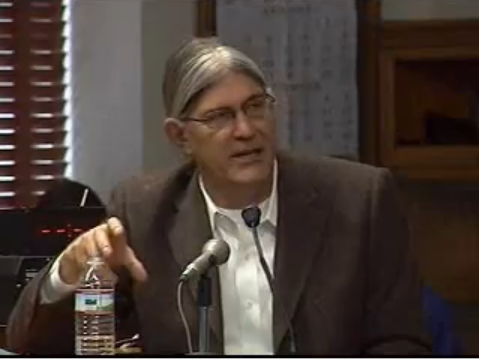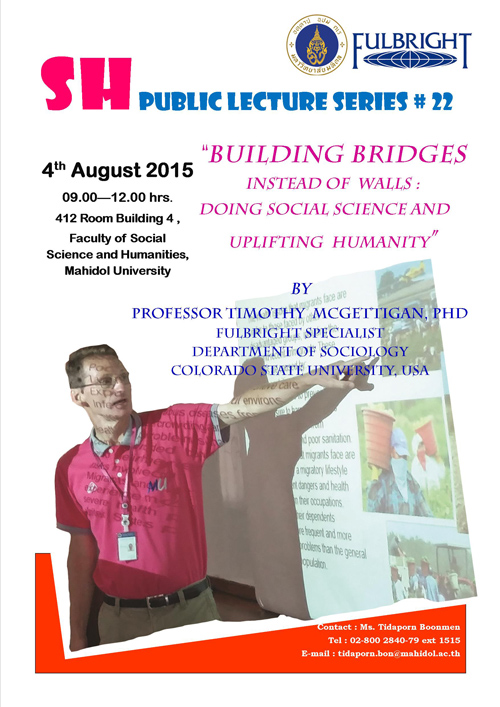Recall that, after having stirred up post-9/11 controversy with his comments about the "little Eichmans" who died in the World Trade Centers, Ward Churchill was tried, convicted, censured and terminated by what amounted to a kangaroo court by his former employer, the University of Colorado-Boulder. It is neither accurate, nor fair to say that the American Association of University Professors (AAUP) has done nothing to aid Ward Churchill during his long, arduous struggle to redeem his academic freedom. Should the AAUP have done more to assist Ward Churchill in his long struggle to preserve and advance the principles of academic freedom? To that I can say, yes. Emphatically, yes! Indeed, I also believe that the AAUP needs to do more--much more!--to ensure that Ward Churchill's academic freedom (and, by extension, every scholar's academic freedom) is restored, reaffirmed and strengthened.
I can understand why Ward Churchill believes that his battle has been lonely. For the most part, Churchill's stalwart colleagues cut and ran at the very first sign of trouble. Over the years, Churchill has taken the brunt of conservative abuse all by himself. Of course, Churchill invited that abuse by making censurious comments at a delicate moment in US history, however, before, during and after the firestorm that brought about Churchill's termination as a Professor of Ethnic Studies at the University of Colorado-Boulder, his comments should have been protected by an inviolable fortress of academic freedom. Permitting Ward Churchill to be skewered by hysterical, flag-waving "patriots" constituted a major setback to academic freedom. And, ever since, academic freedom has continued to lose ground.
Ward Churchill has indicated that, following a recent Colorado Supreme Court decision which reaffirmed his termination at UC Boulder, he might consider appealing the decision to the US Supreme Court. To a degree, Cary Nelson, the President of the AAUP, is correct in pointing out that the current composition of the US Supreme Court bodes ill for issues of principle, such as acaemic freedom. I'll bet Justice Roberts, having abandoned his right-wing cronies on the healthcare decision, is searching high and low for any case of sufficient ideological intrigue that will serve to re-establish his bonafides with conservatives. Plunging a legal sword into Ward Churchill's (and, by extension, academic freedom's) heart is precisely the sort of vindicating caper that Roberts is salivating for.
That said, the Colorado Supreme court case is indicative of the fact that academic freedom is not gaining ground by treading water. "Playing it safe" is a losing proposition in an increasingly anti-intellectual, anti-academic America. The AAUP needs to take a long view of the academic freedom issue. Perhaps it is time that academics raised their visibility by taking a do-or-die stand for academic principles. Too many of my colleagues have spent their entire careers capitulating to legislators, administrators, and other critics on issues of principle. What my colleagues fail to understand is that if professors are not prepared to fight for their principles, then academia will be doomed to suffer one humiliating defeat after another.
By playing it safe, the AAUP has lost ground. If academics are going to reverse the trends that are steadily undermining academia (e.g., corporatization, administrative gridlock, repudiation of academic freedom, etc.), then professors will need to join the battle to save academic freedom--and we damn well need to win it. If the AAUP is not committed to that goal, then the AAUP, academic freedom, and a national culture of academic excellence are all certain to wither and die in the very near future. Some might celebrate the death throes of academic excellence, however, it is hard to imagine how the US will maintain its leadership of the information society in an era where short-sighted anti-intellectuals succeed in destroying what was once the world's greatest educational system.
China and Russia are investing billions in building up their higher education infrastructures. I wonder which global power will claim the inestimable distinction of leading the information society into the 22nd century?







